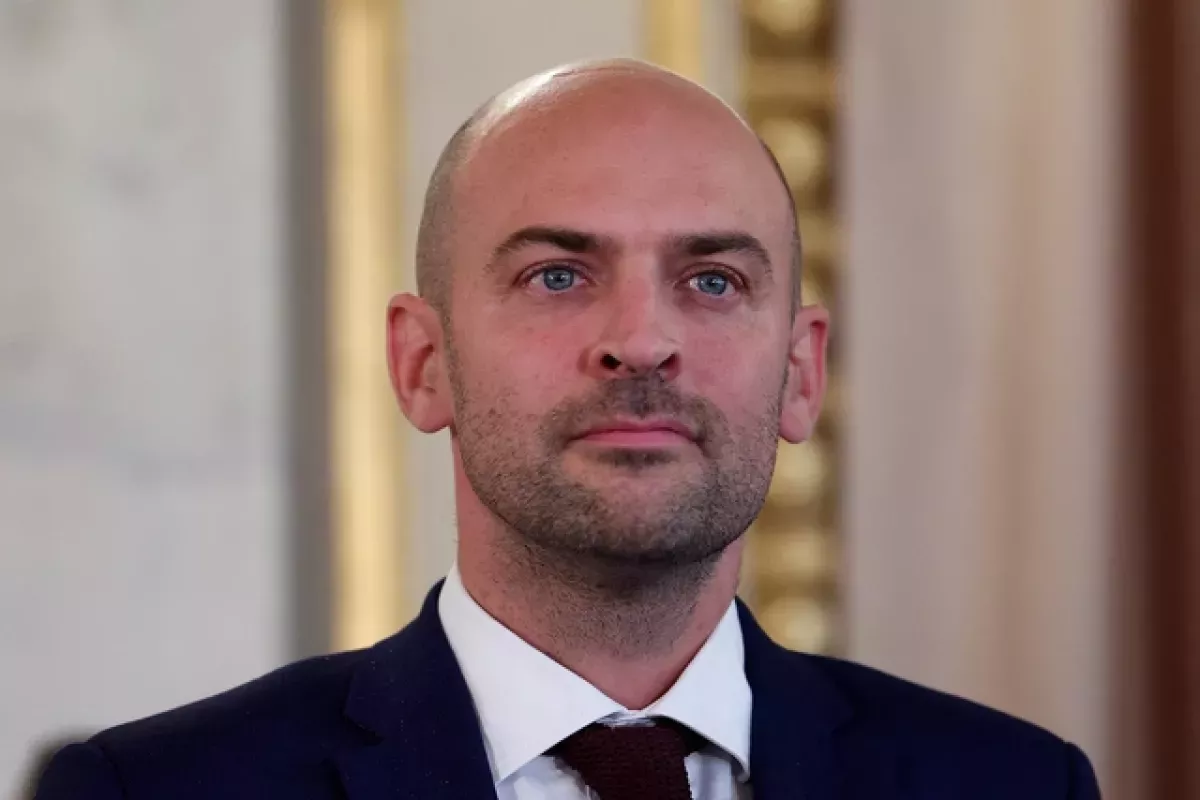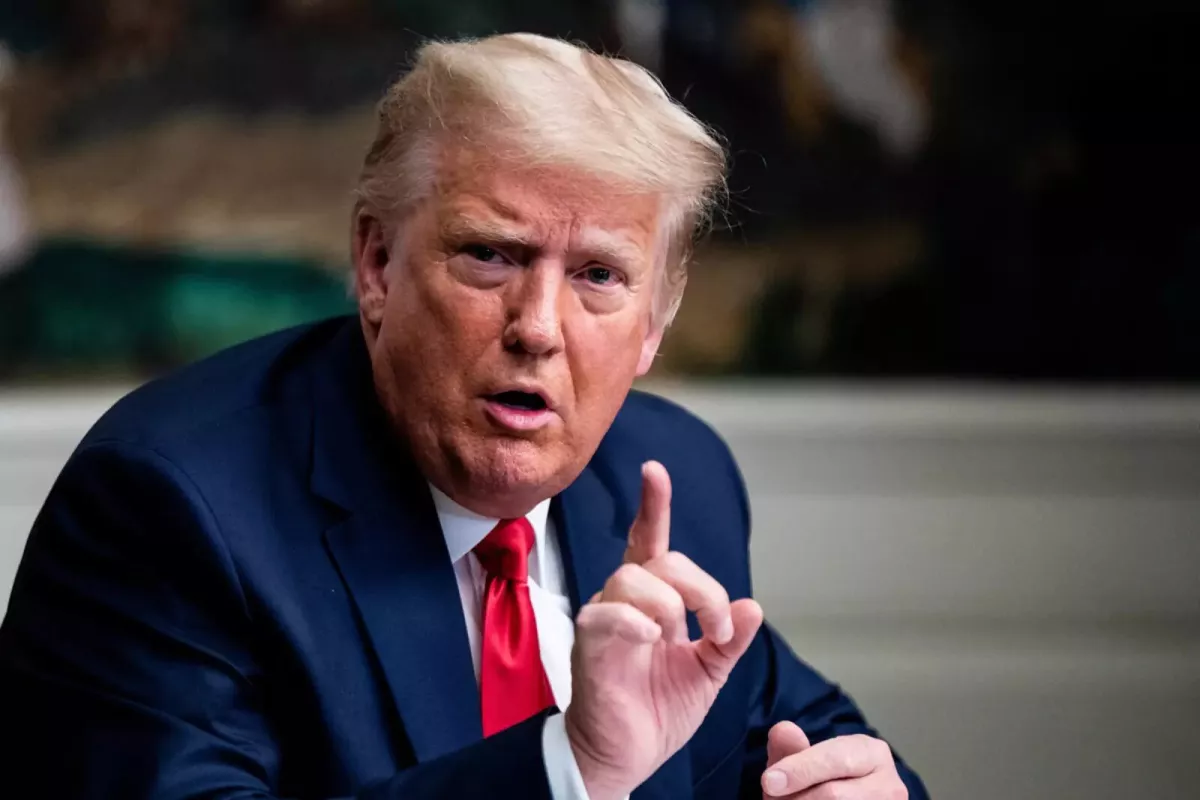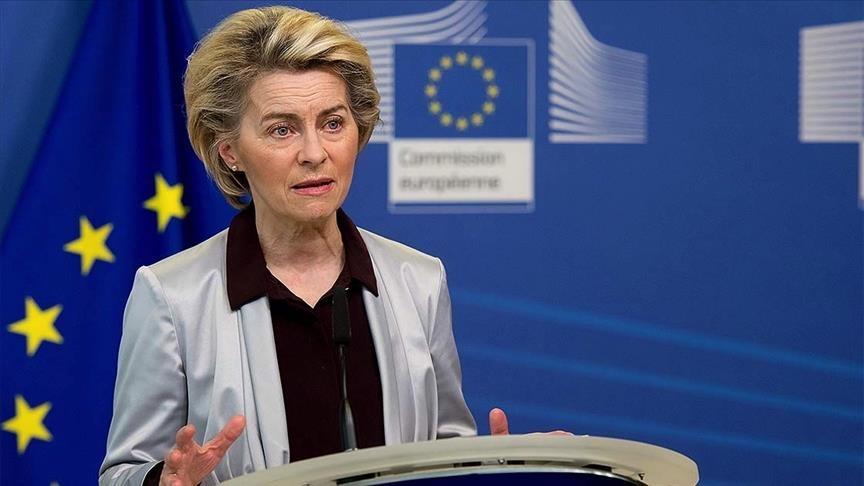French rooster vs. American eagle Who wins the tariff tug-of-war?
Paris threatens US President Donald Trump with a "strong response" in the event of higher tariffs on European goods. But will it succeed? These were the very measures recently warned by France's Minister of Foreign Affairs Jean-Noël Barrot, who believes that in this tariff "exchange of blows," the United States will "lose." Let's take a closer look at how things actually stand.
Tariff escalation game
In his inaugural speech on January 20, Trump declared: "I will immediately begin the overhaul of our trade system to protect American workers and families. Instead of taxing our citizens to enrich other countries, we will tariff and tax foreign countries to enrich our citizens." Notably, during his election campaign, Trump promised to raise tariffs on Chinese goods by 60% and on products from other countries, including the EU, by 20%. The American president assumes that the US indeed faces a serious trade deficit with the EU. In 2023, the United States exported goods worth 344 billion euros to European Union countries, while European companies sent 502 billion euros worth of goods to the US market. Back then, Trump also promised that he would make European countries "pay a heavy price" for their insufficient purchases of American goods.
After Trump assumed the presidency, France's Minister for Europe and Foreign Affairs, Jean-Noël Barrot, stated: "If our interests are affected, we will respond with iron will. If we see wrongful or unjust actions, we will take retaliatory measures… No one is interested in entering into conflict with the European Union." Overall, this minister is known for his combative rhetoric. For instance, on January 8, in response to questions from journalists about Trump's intentions regarding Greenland, he said: "The EU will not tolerate attacks on its borders..." He then went on to discuss how the world has entered a period where the strongest survive. He emphasized that the European Union, which is "infinitely strong," must become even stronger, should not allow itself to be intimidated, and needs to "wake up, strengthen itself... in the military field, in the area of competition," and so on. Interestingly, the 41-year-old minister has a close history with the United States. From 2013 to 2017, he taught at the Massachusetts Institute of Technology (MIT), and in 2020, Barrot became a recipient of the Young Leaders fellowship from the Franco-American Foundation.

What is France today to make such ominous statements against the new administration of the Republican Party in the United States, whose symbol, as is widely known, is the elephant?
France - A nation in crisis
Under Macron, the Fifth Republic has entered a phase of what is perhaps an unprecedented crisis. The country is being torn apart by internal contradictions: industrial decline, job losses, rising living costs, the ruin of farmers and their mass protests, turbulent uprisings in overseas territories, a decline in the popularity of the sitting president and liberal parties in general, which lost their parliamentary majority, leading to a chronic government crisis.
Consequently, France's foreign policy influence is shrinking, and its prestige on the world stage is diminishing. Such a collapse of Paris on the foreign front also seems to have not been seen since the 1960s. After the rise of progressive military governments, Mali, Niger, and Burkina Faso left the post-colonial West African bloc ECOWAS, and the last French troops left Niger. Additionally, in 2024–2025, France had to withdraw its troops from Senegal, Chad, and Côte d'Ivoire.
The reasons behind France's declining significance on the global stage are both objective and subjective. First, France, like the rest of the West, is facing the growing rise of the Global South. Chief among the challenges is the economic competition posed by China, to which Western imperialism has little to counter other than sanctions and military threats. Against this backdrop, there is a strengthening of efforts towards complete decolonization—not only in former parts of the French empire in Africa but also in France's "overseas departments."

Secondly, President Macron personally contributed to France's foreign policy failures. France’s prestige had already been weakened under his predecessors, Nicolas Sarkozy and François Hollande. However, Macron managed to accomplish much more in this regard. After his arrival at the Élysée Palace, Emmanuel Macron’s advisors proposed the following foreign policy program. In the economy, the focus was on limiting free trade with partners and creating large internet companies capable of competing with GAFA (Google, Apple, Facebook, Amazon). In 2019, France introduced a tax on American digital companies, prompting Trump to immediately threaten tariffs of up to 100% on French wine, cheese, bags, and other goods. Following this, Paris backtracked—by January 2020, the tariff increase on American "digital" companies was suspended.
Trump - "the beginning of a different world..."
As can be understood from the statement of the Minister for Europe and Foreign Affairs, Barrot, he hopes to involve the entire European Union in retaliatory measures against Trump's tariffs. Although tariff wars between the US and the EU have occurred before, and they ended in a ceasefire. On January 21, a plenary session of the European Parliament in Strasbourg discussed the impact of Trump’s presidency on EU-US relations. EU Commissioner Šefčovič and Poland’s Minister for EU Affairs, Szłapka, provided their assessments of the possible geopolitical and economic consequences.
Before the debates, centrist MEP Marie-Pierre Vedrenne from the Renew group stated, "We have a lot in common with Americans, but at the same time, we should not be naive. We must not allow our actions to be dictated by Donald Trump or Elon Musk." Socialist MEP Laura Ballarin Cereza took a more radical approach, saying: "When animals sense fear, they attack twice as fiercely." It is clear that the MEP was referring to the new US president.
Back in November 2024, during the debate on Trump’s victory in the European Parliament, the MEPs split into two factions – ardent supporters and equally passionate opponents. At that time, Josep Borrell stated, "This situation is not the end of the world, but it is definitely the beginning of a different world." He also made a mysterious remark: "Europe must be ready." However, he did not specify for what. But he did say that Trump is not the end of the world.

Today, some are already demanding that the European Commission impose sanctions on the social network X and Elon Musk himself for "violations of European digital regulations under the DSA." Just a day before Donald Trump’s inauguration, dozens of French NGOs and several politicians announced their withdrawal from X. However, this did not lead to the collapse of the former Twitter—and is unlikely to do so. One of the significant points of contention between the EU and the US remains Trump and Musk’s rejection of European rules, including environmental regulations and digital laws such as the Digital Services Act (DSA) and the Digital Markets Act (DMA).
Within the EU, there is no consensus on the new American president and his policies—"agreement among allies is lacking." The European Parliament also includes many Trump supporters, with around a dozen MEPs travelling to Washington for his inauguration. Italian Prime Minister Giorgia Meloni was also in attendance. Meanwhile, calls by the European Commission to enforce the Digital Services Act against Elon Musk were firmly rejected by several European politicians. Supporting Trump’s administration is EU Commissioner for Economy Valdis Dombrovskis, who stated, "The European Union and the United States are strategic partners."
Overall, the European Commission takes a rather passive stance on the "Trump issue." Having just recovered from a "severe bout of pneumonia," its President Ursula von der Leyen stated on January 21: "Our first priority will be to engage early, discuss common interests, and be ready to negotiate. We will be pragmatic, but we will always stand by our principles. To protect our interests and uphold our values – that is the European way." She also emphasised that no other economy in the world is as integrated with the American economy as the EU's.
In her speech, von der Leyen refrained from mentioning Trump by name and offered only indirect criticism of the US's withdrawal from the Paris Climate Agreement, initiated by the new president. The European Commission, in general, has been extremely cautious in its remarks about the new Republican administration, seeking to quickly establish contacts with the new occupants of the White House and arrange a corresponding meeting.
However, on the same day, at the Davos Forum, von der Leyen subtly shifted focus to another part of the world—towards the East. She expressed the EU's interest in expanding cooperation with India and China, particularly in the field of the "green economy," a subject met with significant scepticism by the new US president.

The executive branch in Brussels also reacted very passively to Trump's statements about Greenland (part of the EU). A similarly subdued response was seen regarding Elon Musk's support for AFD party candidates in Germany’s elections, which prompted criticism from the French government, demanding a sharper reaction.
What’s noteworthy is that although France ranks fourth among the EU’s largest exporters to the US, its trade surplus with the US is minimal. Germany, Italy, and Ireland reap immense benefits from trade with America, selling more than twice as many goods there as they buy. As a result, these nations would suffer the most from Trump's tariffs.
France, on the other hand, exports €43.89 billion worth of goods to the US and imports €43.66 billion in American products, meaning that any exchange of tariff "pleasantries" would result in roughly equal losses for both sides. Yet, it is not Germany or Italy but France that is the most vocal in its outrage.
This suggests that Paris’s loud political statements and performative "anti-Trumpism" may be an attempt to divert the attention of ordinary French citizens from the serious internal problems engulfing the Fifth Republic.








